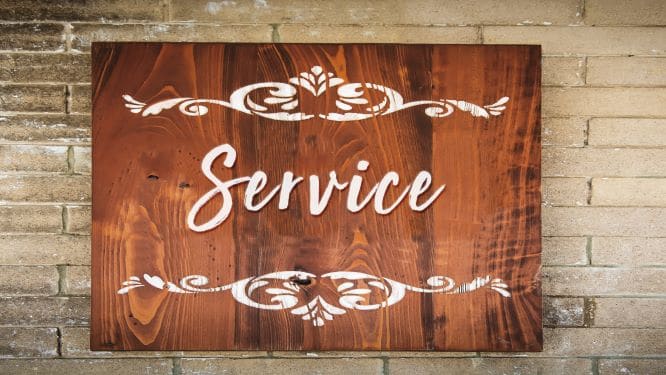VA-to-SBA Certification Transfer: What Veteran-Owned Businesses Should Know

Effective January 1, 2023, the SBA will replace the VA as the agency certifying veteran-owned small businesses and service-disabled veteran-owned small businesses for federal contracts. While this might sound like a mere administrative change, it’s much more. Here’s what VOSBs and SDVOSBs should know about the pending transfer–and how to prepare.
Why is this transfer happening?
The SBA is taking over because, simply put, Congress required it. In late 2020, Congress passed a statute mandating that a transfer occur by January 1, 2023.
If the VA has certified my business, does the certification terminate on January 1?
No. In a Federal Register notice published on July 6, 2022, the SBA explained, “[f]irms verified by VA’s CVE prior to the Transfer Date will be deemed eligible by SBA during the time that remains in the firm’s three-year term of eligibility.” After the three-year period is up, the business must be recertified by the SBA.
It’s worth noting that the July 6 notice was a proposed rule, not a final rule. While any proposed rule is subject to change, I think it is very unlikely that SBA would reverse the course and choose to terminate existing certifications.
If my business is a self-certified VOSB or SDVOSB, does the change affect me?
Yes! At present, a formal VOSB or SDVOSB certification is only required for VA contracts. SDVOSBs selling to other agencies, like DoD, have long been able to self-certify. (VA is the only agency offering VOSB set-aside and sole source contracts, but companies have been able to self-certify for non-VA subcontracts and statistical purposes).
However, in the same statute requiring the transfer to the SBA, Congress also eliminated the ability to receive set-aside or sole source SDVOSB contracts as a self-certified business. Effective January 1, 2023, the certification requirement will go government-wide.
So if my business is self-certified, do I need to be certified by January 1, 2023, to be eligible for SDVOSB contracts?
In my opinion, if your business is a self-certified SDVOSB, you’d be wise to submit a certification application ASAP (to the VA). That said, if you remain self-certified in January, you’ll still have some wiggle room.
Comparing the number of self-certified VOSBs and SDVOSBs in SAM to the number of certified firms in the VA’s VetBiz database, it appears that approximately 27,000 firms are self-certified versus approximately 15,000 VA-certified. Even assuming that some of the self-certified firms choose not to pursue formal certification, it’s very possible that 20,000 or more businesses will be seeking certification in the near future.
No matter how efficiently the SBA works, there’s no way to process that many applications quickly. In other words, if a “certification rush” begins later this year or in 2023, you could be waiting a long time! Meanwhile, the VA’s current processing times, while not guaranteed, generally are pretty reasonable.
This is why I think it’s wise to get certified as soon as possible rather than waiting. That said, if you remain uncertified into January, all is not lost. Perhaps anticipating a heavy backlog of new applications, Congress created a one-year “grace period” in the statute. As the SBA explained in its Federal Register notice: “[s]elf-certified SDVO SBCs that submit an application within the one-year grace period will maintain eligibility until SBA makes a final eligibility decision.”
Effective January 1, 2024, the grace period will be up. At that point, only certified businesses will be eligible for VOSB and SDVOSB contracts government-wide.
Will the VOSB or SDVOSB eligibility requirements change?
Not much, probably. The VA has largely deferred to the SBA’s VOSB and SDVOSB eligibility requirements since 2018. Since the SBA already wrote most of the eligibility rules, the SBA’s Federal Register proposal does not make many changes.
Nevertheless, the SBA has proposed to essentially eliminate the VA’s “good character” requirement, which remained unique to the VA even following the 2018 consolidation of most eligibility rules. In its proposal, the SBA says that the matters the VA describes as “good character” eligibility requirements are better characterized as “responsibility issues determined by a contracting officer relating to a specific contract.” With that understanding, the SBA writes that its role should not encompass a good character evaluation.
Additionally, the SBA is requesting public comment on whether to write a specific eligibility rule for franchises. Obtaining an SDVOSB or VOSB certification has been almost–if not entirely–impossible under the current rules, so franchises undoubtedly welcome a change.
Certification or Verification?
Let’s wrap up with something a little lighthearted. If you’re familiar with the VA’s program, you know the VA has long insisted on using the term “verification” instead of “certification.” Well, you can wave goodbye to “verified” small businesses.
The SBA is dropping the term “verification” and replacing it with “certification.” The word “certification,” in fact, appears more than 200 times in the SBA’s proposed rule! So, if you’ve ever had a VA official correct you for using the “C-word” (I have!), you’ll soon be free to talk about “certified” VOSBs and SDVOSBs.
Disclaimer:
Nothing contained in this article is to be considered as the rendering of legal advice for specific cases, and readers are responsible for obtaining such advice from their own legal counsel. This article is intended for educational and information purposes only. Although the author strives to present accurate information, the information provided in this article is not guaranteed to be accurate, complete, or up-to-date. Reading this article does not establish an attorney-client relationship with the author.


